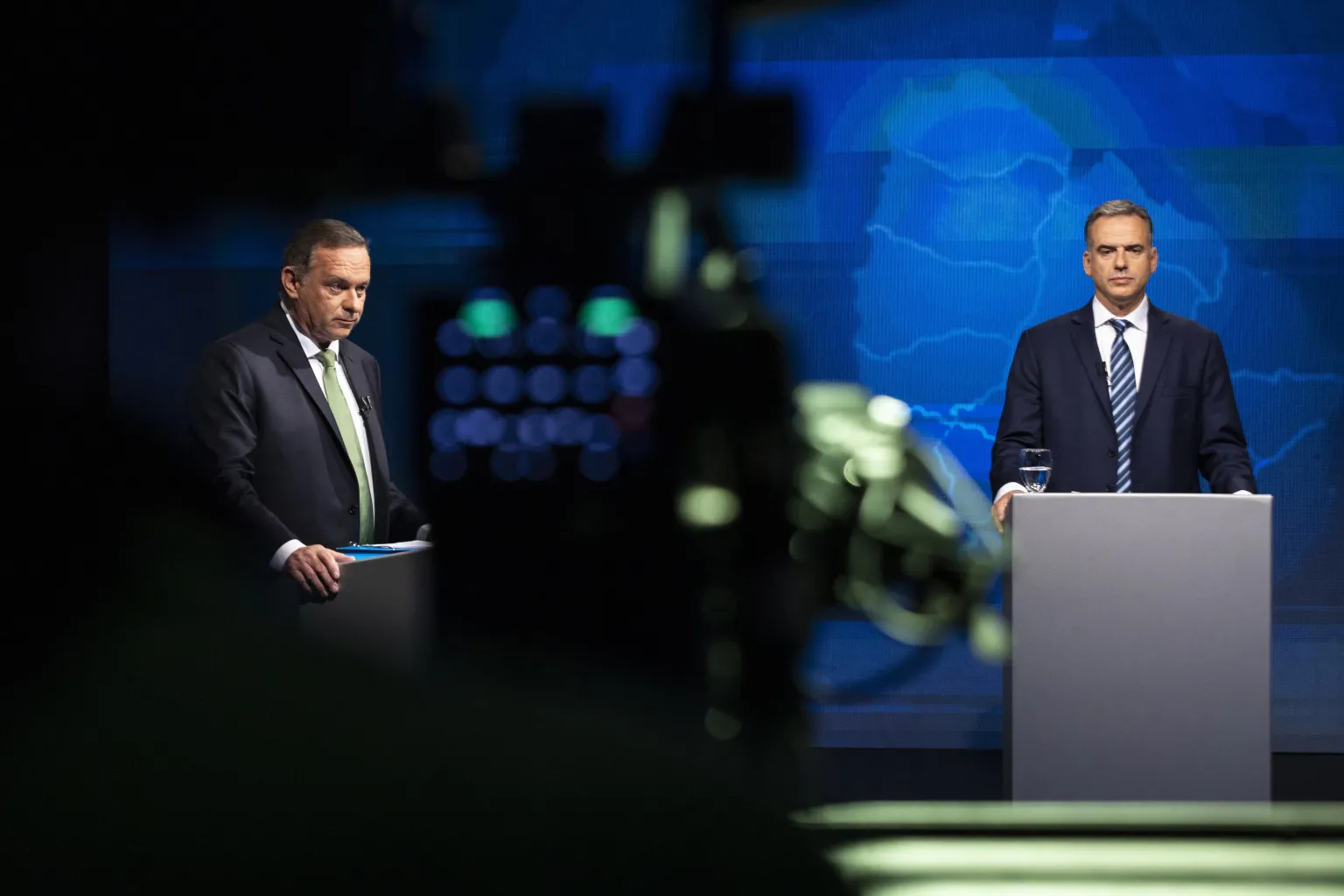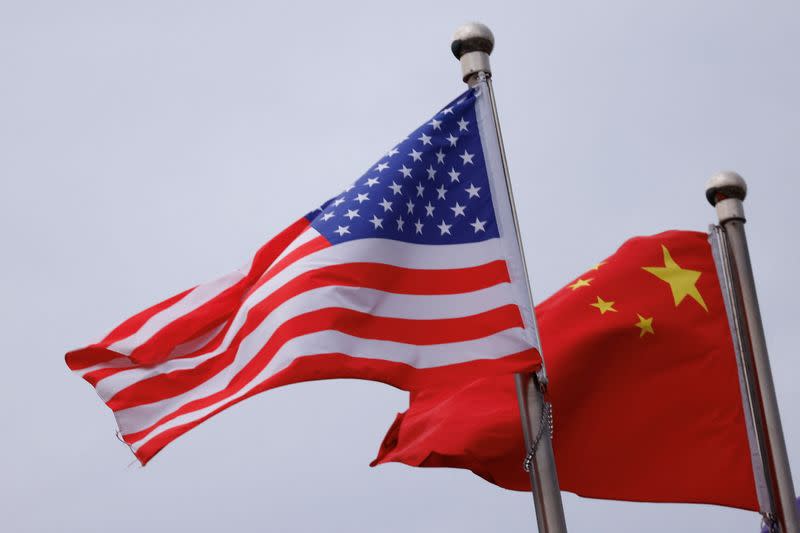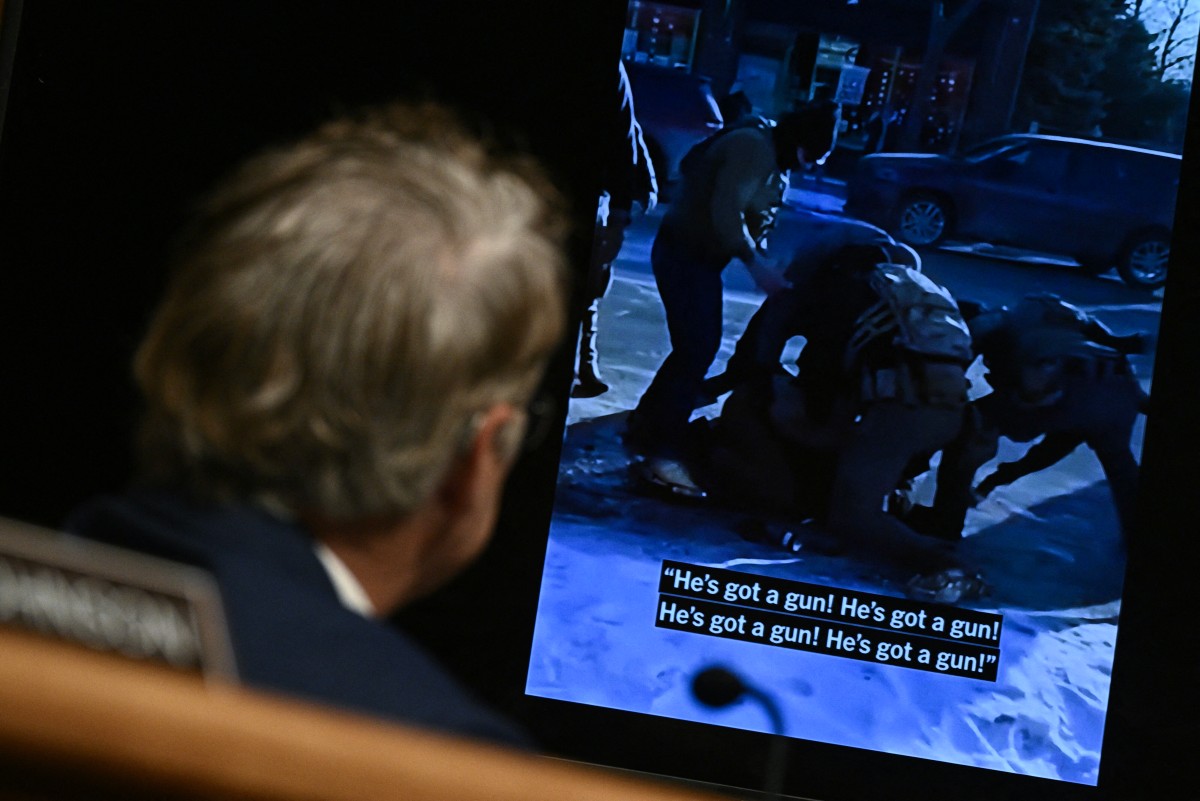International
The presidential candidates in Uruguay promised in a debate not to raise taxes

The candidates for the Presidency of Uruguay for the ruling National Party, Álvaro Delgado, and the opposition Frente Amplio, Yamandú Orsi, presented their proposals in a televised debate, in which both politicians promised that they would not raise taxes.
The debate between the candidates prior to the second round next Sunday, was broadcast on national radio and television, and is stipulated by Law 18,827, promulgated in September 2019.
A debate in Uruguay with counterpointing
It began with opposing messages from the aspirants. While Orsi pointed out that Uruguay is “a stagnant country,” Delgado pointed out that the government model ensures “future and development.”
“Next Sunday we will have to choose between two options: that of a stagnant country, that of unfulfilled promises or that of a sure change. A change that will certainly not be radical and that involves the well-being of our people,” said the Frenteamplista.
Delgado stressed: “Here two models of country are compared, a model that retreats with ideology and with uncertainties. And a model – ours – that ensures guarantee, certainties, future and development.”
From human development to work
In the 90-minute debate, the candidates presented their views on five thematic blocks: human development, security, economy, knowledge and work.
In the first of these, both agreed on the importance of giving “quality of life to citizens.”
In terms of security, Delgado pointed out that the current government will leave the next, for the first time since 1984, fewer crimes reported, something that was achieved, he said, by trust in the police.
Although he said that they are not satisfied with what has been achieved, he reviewed with a graph numbers in the decrease in robberies (42%), thefts (22%), abigeato (57%) and homicides (3%); he said that “is the way.”
In addition, he mentioned the importance of repression, rehabilitation and reintegration.
Orsi, for his part, spoke of the victims “fruit of violence” in Uruguay, and gave as an example that every 15 days a child enters a hospital for a gunshot wound.
In that sense, he said that the pillars of his security policy will be the active exercise of authority, the defense of victims of crime and crime, in addition, he supported the police and the incorporation of more technology.
When talking about the economy, the Frente Amplio candidate recalled that when that party governed, between 2005 and 2020, the Gross Domestic Product increased by 73.2%.
Taxes: key point
“We are not going to increase taxes. In this period in which I will have to be Government, we are especially going to support small and medium-sized enterprises,” Orsi said.
On the contrary, Delgado said that the Government of the Frente Amplio gave the country with an inflation “of almost two digits” and that currently this is half, while pointing out that the real salary “is the highest in 49 years.”
He also said that an eventual government headed by Orsi will raise taxes, since, he said, this is what the Frente Amplio program says, and that on the contrary the ruling coalition will not do it.
“We are not going to raise taxes, we are going to generate investment incentives and we are going to open Uruguay to the world with pragmatism and without ideology,” Delgado said.
Delgado added that he intends “a cheaper Uruguay to live and to produce.”
When Orsi intervened again, he reiterated that he will not raise taxes.
He spoke of unemployment in the country, detailed that unemployment at the level of young people is close to 26%, the highest in the region, he said.
The National Party candidate said, on the contrary, that the unemployment rate in the country is 8.1% and among young people it is almost 2.5% higher.
The final message
The debate, carried out exactly one week before the second round of the elections, closed with a final message from each of the candidates.
“Here people can buy two country models and two leaderships. Our model that is a model of certainties, with economic growth, with security, with guarantees and with freedom. And the other model that is to return to the past with a lot of ideology, with more uncertainty, with surely more taxes, but surely with less freedom and with many more risks,” Delgado said.
He offered his experience and added that he is prepared and tested to govern the country.
“There’s one week to go. You will all have to choose between two proposals, two projects: the one of broken promises or the country of commitments. The country of commitments is one that implies a sure change,” emphasized the opponent Orsi.
He reiterated that he wants to become the next president of the Uruguayans and that, just as he knew how to do it when he governed the department (province) of Canelones (2015-2024), he will know how to do it at the head of all of Uruguay.
International
Florida judge sets 2027 trial in Trump’s $10 billion lawsuit against BBC

A federal judge in Florida has scheduled February 2027 for the trial in the lawsuit filed by U.S. President Donald Trump against the BBC, in which he is seeking $10 billion in damages for defamation.
Trump accuses the British broadcaster of airing a misleading edit of a speech he delivered on January 6, 2021, which, he says, made it appear that he explicitly urged his supporters to attack the U.S. Capitol in Washington.
The president filed the suit in December in federal court in Florida, alleging defamation and violations of a law governing business practices when the program was broadcast ahead of the 2024 election.
Trump is seeking $5 billion in damages for each of the two claims.
Lawyers for the BBC unsuccessfully asked the court to dismiss the case, arguing that Trump had not suffered a “legally recognizable harm,” since the investigative program Panorama, which included the edited footage, aired outside the United States.
International
Head-of-state diplomacy key to guiding China–U.S. ties, Beijing says

Head-of-state diplomacy plays an irreplaceable strategic guiding role in China–United States relations, Chinese Foreign Ministry spokesperson Lin Jian said on Thursday during a regular press briefing, when asked about high-level exchanges between the two sides.
Lin added that in a recent phone call, U.S. President Donald Trump once again expressed his intention to visit China in April, while Chinese President Xi Jinping reiterated his invitation.
Both sides remain in communication regarding the matter, the spokesperson said.
Lin noted that the essence of China–U.S. economic and trade ties lies in mutual benefit and win-win outcomes.
“Both parties should work together to implement the important consensus reached by the two heads of state, injecting greater certainty and stability into China–U.S. economic and trade cooperation, as well as into the global economy,” he said.
International
Trump administration to end special immigration operation in Minnesota

The administration of Donald Trump is bringing to a close its special operation targeting illegal immigration in the northern state of Minnesota, border czar Tom Homan announced Thursday, following weeks of unrest and the fatal shootings of two activists by federal agents.
Thousands of federal officers had been deployed to Minnesota in December to carry out large-scale raids against undocumented immigrants.
The operations triggered strong reactions from residents and advocacy groups, leading to daily confrontations and the deaths of two people who were shot by federal agents.
“I proposed, and President Trump agreed, that this special operation should end in Minnesota,” Homan said during a press conference in the state capital, Minneapolis.
“A significant drawdown began this week and will continue into next week,” he added.
Homan indicated that similar enforcement efforts could be launched in other cities.
“Next week we will redeploy the agents currently here back to their home stations or to other parts of the country where they are needed. But we will continue to enforce immigration laws,” he said.
-

 Central America4 days ago
Central America4 days agoGuatemala isolates Barrio 18 leader after attacks that killed 11 police
-

 Sports5 days ago
Sports5 days agoShakira ignites El Salvador with near sold-out residency at Mágico González Stadium
-

 International2 days ago
International2 days agoU.S. Health Department says CDC grants no longer match agency priorities
-

 International1 day ago
International1 day agoOver 50 Civil Groups Urge House to Impeach DHS Secretary Kristi Noem
-

 International2 days ago
International2 days agoICE Arrests Reach 379,000 Under Trump, Testimony Shows Amid Minnesota Shootings
-

 Central America1 day ago
Central America1 day agoGuatemala to Phase Out Longstanding Medical Cooperation Agreement with Cuba
-

 International2 days ago
International2 days agoDespite homicide drop, overall deadly violence remains high in Mexico: study
-

 International2 days ago
International2 days agoSheinbaum Urges Mexico to ‘Jealously’ Guard Sovereignty at Air Force Anniversary
-

 International2 days ago
International2 days agoJet Fuel Crisis Hits Cuba: Flights Disrupted, Air Canada Cancels Services
-

 International2 days ago
International2 days agoMEPs Approve Plan That Could Fast-Track Rejection of Some Asylum Claims
-

 International1 day ago
International1 day agoNew York’s New Archbishop Names Óscar Romero as His Favorite Saint
-

 International2 days ago
International2 days agoMexico Rises Slightly to 141st in Global Corruption Perceptions Index 2025
-

 International3 hours ago
International3 hours agoFlorida judge sets 2027 trial in Trump’s $10 billion lawsuit against BBC
-

 International3 hours ago
International3 hours agoTrump administration to end special immigration operation in Minnesota
-

 International3 hours ago
International3 hours agoHead-of-state diplomacy key to guiding China–U.S. ties, Beijing says
-

 International1 day ago
International1 day agoExclusive Tucson Neighborhood Shaken by Disappearance of Savannah Guthrie’s Mother
-

 International2 days ago
International2 days agoChile Unveils Latam-GPT to Give Latin America Its Own AI Model


























